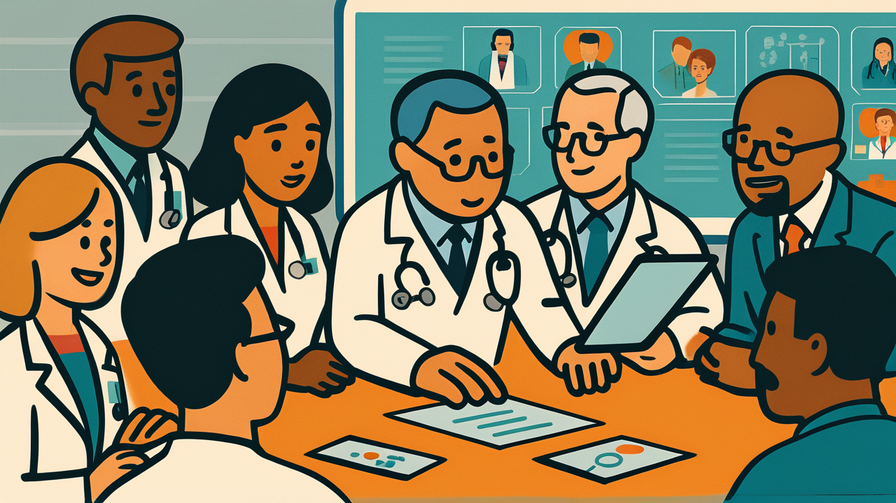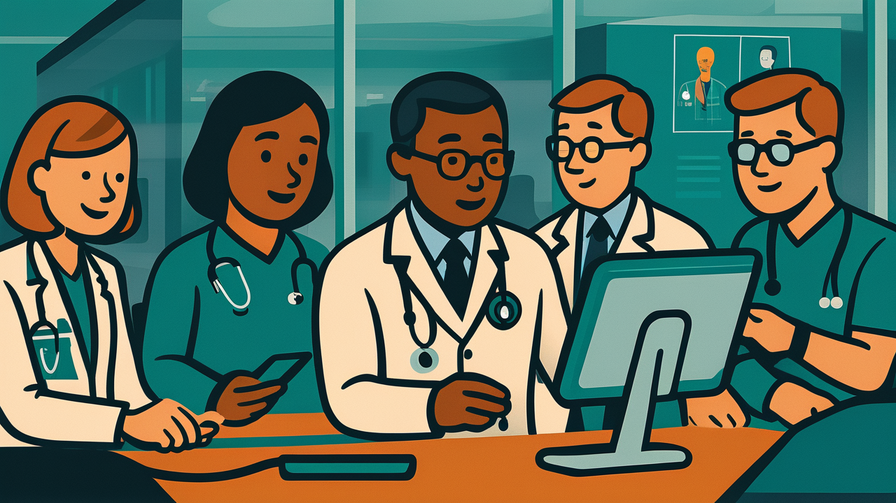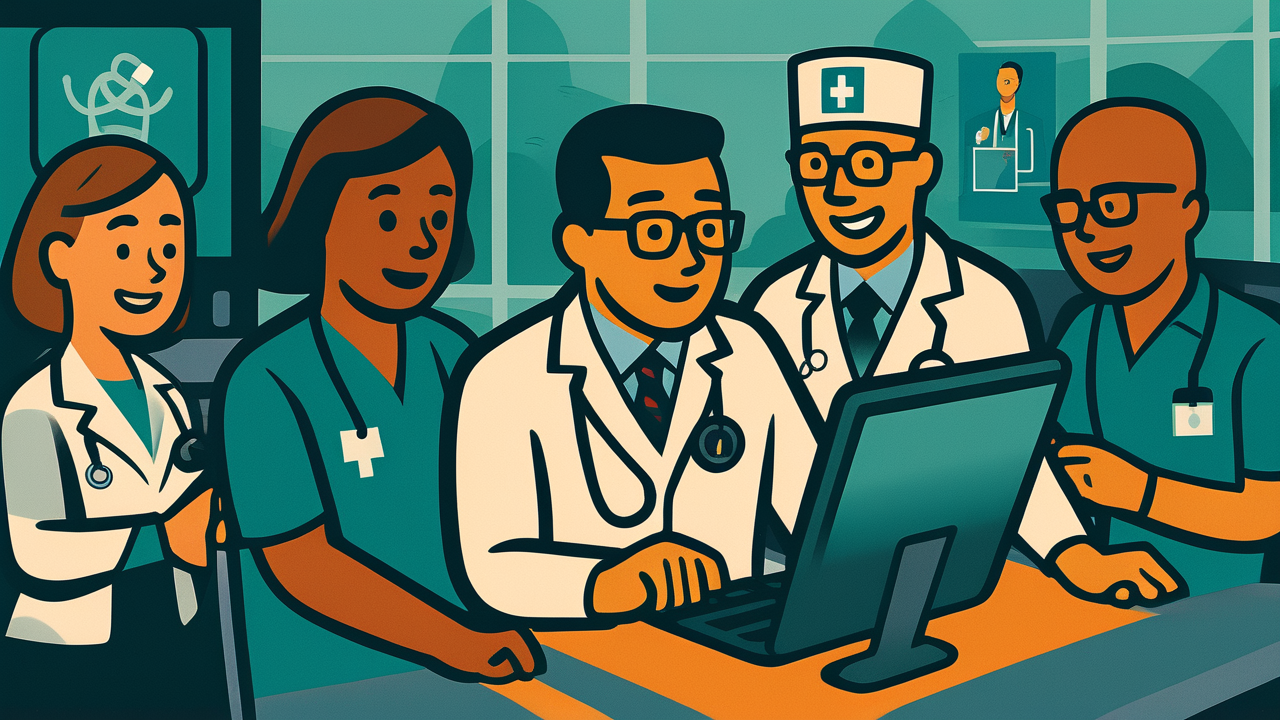[Disclaimer] This article is reconstructed based on information from external sources. Please verify the original source before referring to this content.
News Summary
The following content was published online. A translated summary is presented below. See the source for details.
Picture this: over 100 coders, doctors, and students pulling all-nighters in Google’s Paris office, fueled by energy drinks and the dream of revolutionizing healthcare. That’s exactly what went down at Google France’s healthcare hackathon! This wasn’t your typical boring medical conference – it was an intense 48-hour competition where teams raced to build AI-powered solutions for real healthcare problems. Think of it as a massive group project where the stakes are actually saving lives. Teams worked on everything from AI that helps doctors spot diseases earlier to apps that make healthcare accessible in rural areas. The coolest part? Real doctors were there working side-by-side with tech nerds, making sure the solutions actually made sense in the real world. Participants came from all backgrounds – college students coding next to experienced doctors, creating this amazing mix of fresh ideas and practical knowledge. By the end, exhausted but excited teams presented solutions that could genuinely change how we experience healthcare.
Source: Google Blog
Our Commentary
Background and Context

Healthcare hackathons are becoming a big deal, and here’s why: healthcare systems worldwide are struggling with doctor shortages, long wait times, and outdated technology. France, despite having universal healthcare, faces challenges like 6-month waits for specialists and “medical deserts” where rural areas have no doctors. Enter hackathons – these coding marathons bring together people who usually never work together. Imagine TikTok creators collaborating with heart surgeons – that’s the vibe! Google and other tech giants host these events because they know young developers can think outside the box. Plus, healthcare is a massive market worth trillions globally, and whoever creates the next game-changing health app could become the next tech billionaire.
Expert Analysis
Tech and healthcare experts are pumped about these collaborations because they solve a major problem: doctors know what needs fixing but often lack coding skills, while developers can build anything but don’t understand medical needs. AI in healthcare is especially hot right now because it can analyze medical images faster than humans, predict disease outbreaks, and even help diagnose rare conditions. However, there’s a catch – medical AI needs to be super accurate because mistakes can literally cost lives. That’s why having actual healthcare professionals involved is crucial. They make sure the cool tech actually works in messy, real-world hospitals where Wi-Fi cuts out and patients don’t follow instructions perfectly.
Additional Data and Fact Reinforcement
The numbers are mind-blowing: AI in healthcare is expected to save $150 billion annually for the US healthcare system by 2026. In France, where this hackathon took place, there are areas where the nearest doctor is 45 minutes away by car. Previous healthcare hackathons have produced real winners – an app from a 2019 hackathon now helps 50,000 diabetes patients manage their condition. Google has invested over $200 million in healthcare AI research. What’s really cool is that 40% of hackathon participants are usually under 25, proving that young people are driving healthcare innovation. Some winning projects have gone on to receive millions in funding and are now actual companies helping real patients.
Related News
This hackathon is part of a bigger trend. Microsoft hosts similar events focusing on accessibility in healthcare. Meta (Facebook) is working on VR for medical training. Even TikTok has partnered with health organizations to combat medical misinformation. The timing is perfect – after COVID, everyone realizes we need better digital health tools. Other countries are taking notice too. India hosts massive health hackathons because they need solutions for 1.4 billion people. The US has hackathons specifically for mental health apps, recognizing the teen mental health crisis. Some universities now offer “hackathon credits” for participating in these events.
Summary

Google France’s healthcare hackathon shows how mixing young tech talent with medical expertise can create real solutions for healthcare problems. By turning healthcare innovation into an exciting competition rather than a boring conference, they’re attracting the brightest minds to tackle some of society’s biggest challenges. For teens interested in tech or medicine, these events prove you don’t need to wait until you’re 40 with multiple degrees to make a difference in healthcare.
Public Reaction
Social media lit up with participants sharing their sleep-deprived selfies and project demos. Medical students were excited about finally using their coding skills for something meaningful. Some French doctors initially skeptical about “tech bros” fixing healthcare were impressed by the practical solutions. Parents of participants bragged on Facebook about their kids “saving the world.” Critics pointed out that 48 hours isn’t enough to solve complex healthcare issues, but supporters argued it’s about sparking innovation, not finished products. Young developers shared that working with real doctors changed their perspective on what technology should prioritize. LinkedIn was flooded with connection requests between participants planning to continue their projects.
Frequently Asked Questions
Q: Do I need to be a medical expert to join a healthcare hackathon?
A: Not at all! Most teams need coders, designers, and creative thinkers more than medical experts. The best teams mix different skills – you might handle the coding while a medical student explains what doctors actually need.
Q: What happens to hackathon projects after the event?
A: The best ones often become real startups! Winners usually get mentorship, funding opportunities, and connections to develop their ideas further. Even non-winning projects sometimes get picked up by companies or inspire new features in existing apps.
Q: How can a teenager prepare for these hackathons?
A: Start learning basic coding (Python is great for AI), understand design thinking, and maybe read up on current healthcare challenges. Join your school’s coding club or start building simple health-related apps. Most importantly, bring creativity and energy – those matter more than perfect technical skills!


